Anita Wag Agrimanaki worked as a tour guide for Apollo in Greece in the early 90s, and while working there she found love in Crete. Now Anita has lived in Crete with her husband for 25 years and they have two children, now aged 16 and 20.
In today's interview, Anita talks about the open and generous Greek people, but also about the tough economic challenges facing the country and its people. Anita also shares her tips for those who want to visit Crete as a tourist. If you want to follow Anita's everyday life in Greece, you can check out her blog. Anitas Crete.
Table of contents
How did you end up in Greece and Crete in the first place and how long have you lived there now?
In 1992 I got a job as a tour guide with Apollo. I knew nothing about Crete and hoped to work on Rhodes or some island in the Cyclades. I ended up in Chania in Crete and worked for Apollo for 3 years as a tour guide and booking manager. During that time I met my husband, got engaged and married.
Can you tell us about your family and your daily life in Crete?
We have 2 children who are 16 and 20 years old. Daily life during the tourist season April-October usually consists of work 7 days a week. In the winter, we are unemployed and the husband tries to find "day jobs" as an olive picker or if he is lucky, some renovation jobs at the hotel where he works as a chef in the summers.
To cut to the chase, summers mean working as much as possible to pay bills and try to make enough money to survive the winter. In winter, we have plenty of time but usually not the financial means to do anything that costs money. It may sound terrible, but like many Greeks today, we make the best of the situation. We still indulge in small trips, eating well and going out to eat in between.
The last year has been a bit different because I went to Sweden to work for 6 months. For the last 8 years I had my own shop which I closed down last year. Then I started looking for a job here. I was offered several jobs but I really can't stand up and work for 6-700 euros for a full time job.
Salaries now are incredibly low. In the years after I left Apollo, I worked in hotel reception and had about double what the salaries are today. Prices, taxes, electricity and other things have gone up and salaries and pensions have gone down. There is no balance at all.
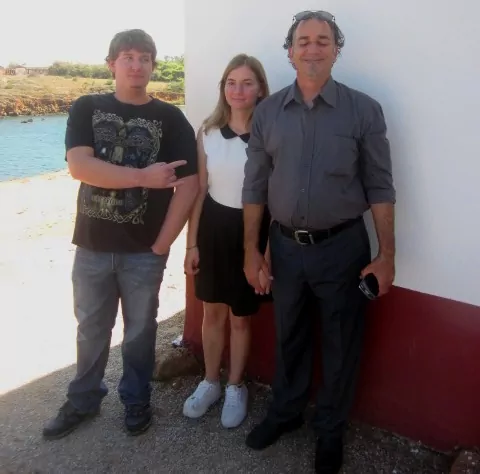
What are the main cultural differences you experience between Sweden and Greece?
Here, people are more vocal and if they have a complaint about something, they tell the person directly. They don't stand quietly and pretend that everything is fine and then write down the complaints and send them to the company or organisation in question. Hence the chaos that prevails in queues, among other things.
Sometimes you might think that Greeks interfere too often, but sometimes that's a good thing too, it means they see and hear what's going on around them. They give way to the elderly on buses, they let pregnant women go ahead in queues, they try to calm unknown screaming children. (My son once screamed in a shop because he couldn't buy me sweets - then a Greek, unknown to me, brought him a chocolate bar).
They find it easier to "invite the team around", which Swedes often find difficult. Even now, in times of crisis, they do so, but you see more and more now that the bill at the restaurant is shared because most people are having a hard time financially. Here it is usually more relaxed to socialise and everyday life is not as routine, a spontaneous coffee at someone's home is more ok here. A glass of wine after work or even at work despite having to get up and work the next day is more accepted here.
Life is not as routine even though a lot has changed here too and it is becoming more routine here than it was before. This may be because the children have more activities that they have to be taken around. The spontaneous play in the neighbourhood is disappearing more and more and people are becoming more "busy" than they used to be.
Something that has not changed, however, is that if someone comes to your home at dinner time, an extra plate is always set out, plus if you have 6 people invited to dinner, it can easily be 16 instead. Everyone is welcome. People find it easier to share, I think. Someone has an orange tree, well then of course everyone gets friends from these oranges.
What is the best thing about living in Greece and Crete?
A bit like the answers above ... Otherwise the best thing about Greece: the climate, the sea, the food, the atmosphere. The best thing about Sweden: Everything is so organised, good wages, actually easier to find extra prices at the supermarket, cheap internet and phone, greenery and nature.
Do you miss anything from Sweden and if so, what?
See above 🙂 Then there are some things that you can live without but that are fun and good to get down sometimes. Loose candy, sourdough crackers, pearl sugar (!) to bake buns, the library!!! what an incredible thing really to be able to borrow books and at least the library in my city is so nice ... Strong cheeses like priest cheese and Svecia.
How has the economic crisis affected ordinary Greeks and how do people see the future in Greece today?
When I returned from my 6 months in Sweden, I discovered that this is often the topic of conversation between Greeks. (It used to be, but I didn't react as much.) It sounds like people have given up and what life is all about is TRYING to pay all the bills on time.
It is very rare to hear someone being satisfied with their situation and looking forward to the future. Poor children growing up now, their dreams are shattered at once when they hear their parents always talking about the poor economy. I am often told that we should be happy that we "have another country" where our children can go, because the future here is what it is.
What are your best tips for tourists who want to visit Crete?
Rent a car and go to small villages, eat in small taverns and don't be afraid to try unfamiliar dishes. Be open-minded and get to know the locals, they will give you the best tips on where to eat. For God's sake, skip the all-inclusive!!! Wow, all the tips have to do with food... Crete has wonderful beaches and Elafonissi is often on lists of best beaches. If you're interested in history, the archaeological excavations here are a real treat.
Finally, a question we ask everyone we interview: What is your dream destination?
There are several. I wish we could afford not to work one summer and instead spend a whole summer lounging around Greece. Both on the mainland and on the islands. At some point I will go to Ireland and Scotland too.
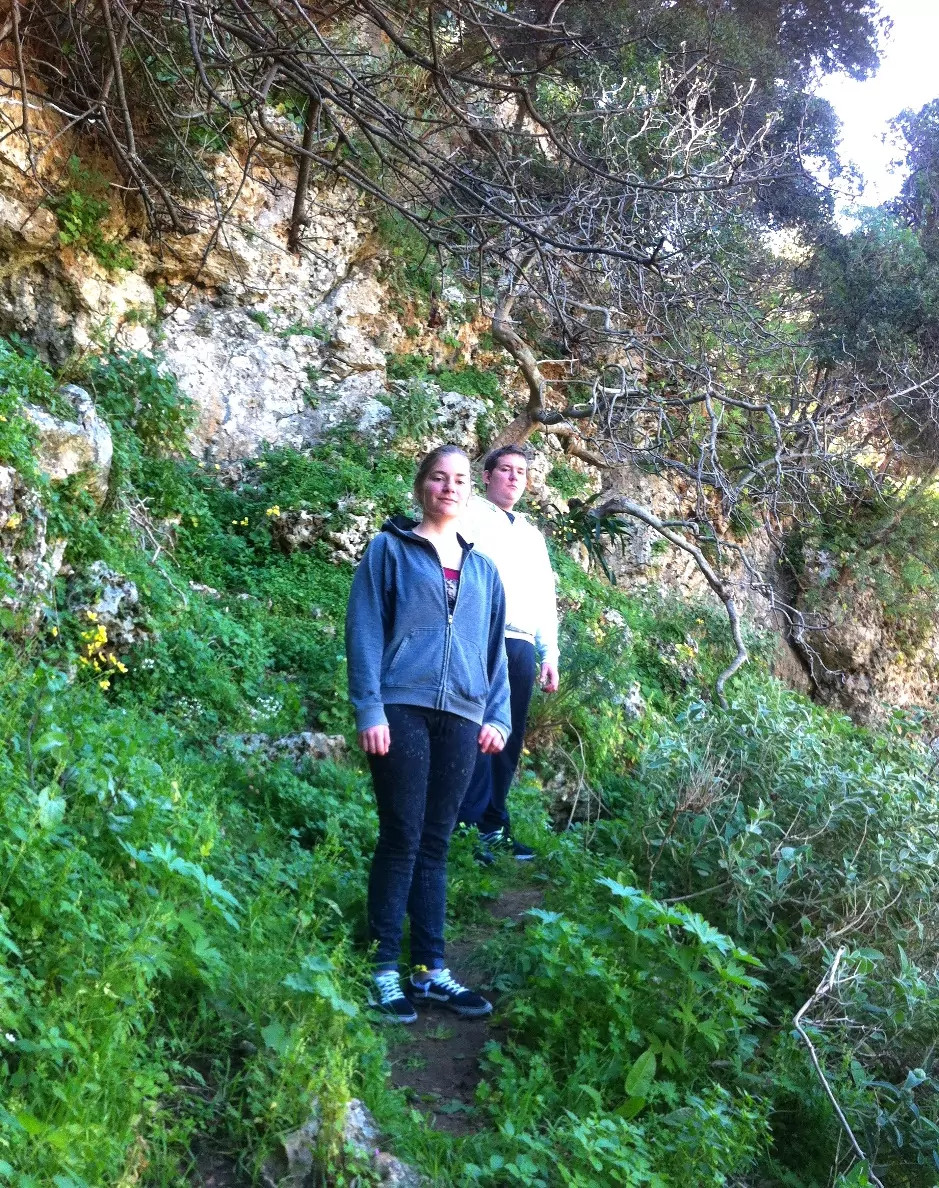
Thank you Anita Wag Agrimanaki for sharing your experiences and thoughts!
Top photo: Anita Wag Agrimanaki and her husband Jannis.


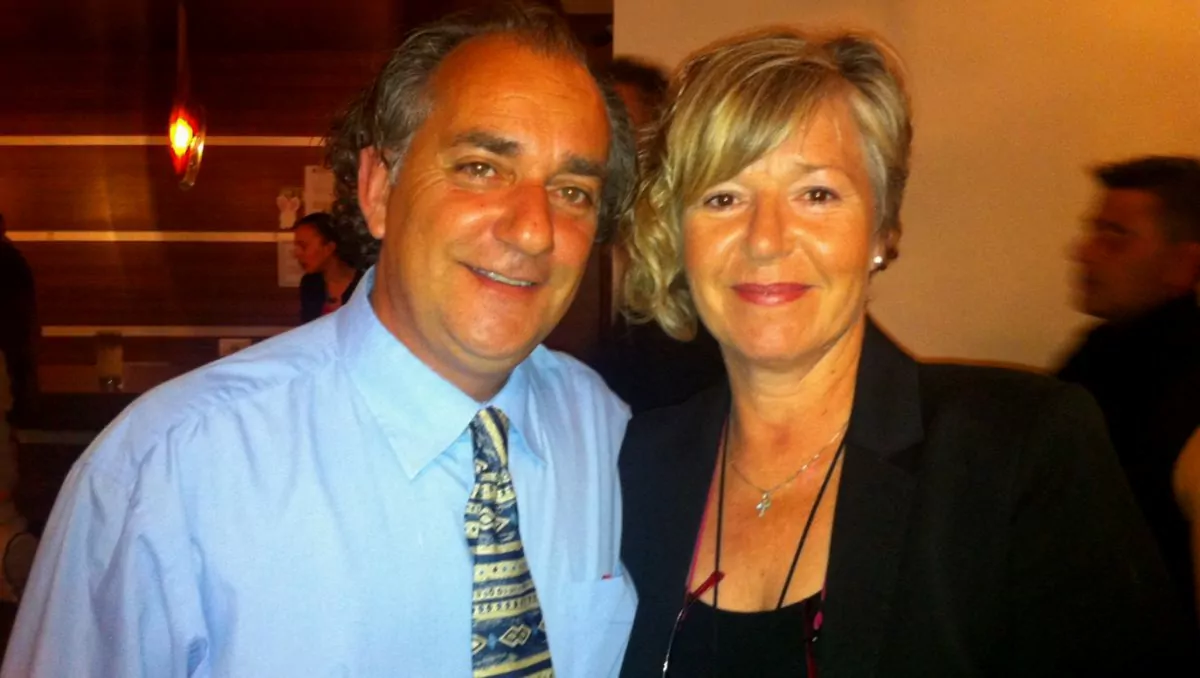






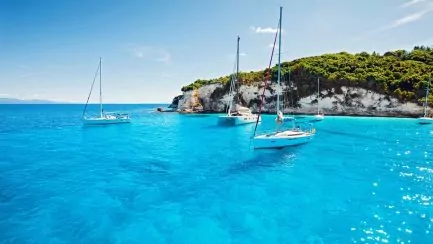
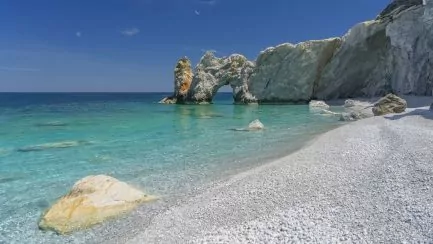
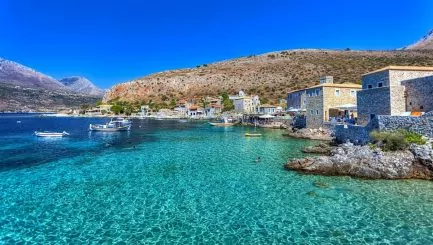
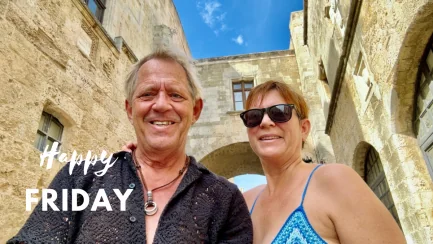
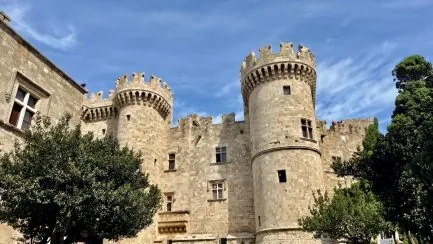




Lennart says:
Tough to live in Greece now but also self-inflicted!
15 October 2016 - 7:06
Lena - good for the soul says:
Fantastic to have such a tough time financially and yet so natural to share!
Hug Lena
15 October 2016 - 7:53
nils-åke says:
Interesting reading. Can understand that it's tough if it's quiet in the winter.
15 October 2016 - 9:06
Cattis says:
Sad that it is so tough to live in this wonderful country nowadays. I really hope it will recover soon for both family and friends I have down there. Interesting to read Anita's response, will probably check out her blog! ☺
15 October 2016 - 10:01
Ama de casa says:
Sounds really tough. Strong to fight on!
15 October 2016 - 10:32
Ann-Sofie says:
Have been reading your blog for a year or so Anite, am so impressed that you are sorting it all out. Tough to leave the family for six months and sincerely hope that it helps to fix the winter.
Spent two winters at the marina in Ahios Nikolas and learnt to love Crete and Greece. An island that I always long to return to and hope to settle on someday.
15 October 2016 - 10:59
Mr Steve says:
How wonderful. I can sense the smells and the atmosphere when I read about everyday life in Greece. Just what I needed to suddenly transport myself to Greece. I love Greece and the Greeks. I also go by the name "Greek guy" here at home. Will definitely look into her blog.
I read an editorial on Greece this morning and was just sketching a blog post for tomorrow on this subject.
15 October 2016 - 12:18
BP says:
It can't be easy to manage everyday life when things are so tough financially! A good post that opens our Swedish eyes a bit, I must say ...
15 October 2016 - 13:13
Eva - People in the Street says:
What an interesting post, rewarding to know more about how everyday life is in Greece. Understand that it is really tough sometimes. Greece is one of my favourites 🙂
15 October 2016 - 13:50
Birgitta in Umeå says:
But so much fun!
When I opened freedomtravel today, two people I've come to know showed up. I hesitated for a few seconds. But it's Anita and her husband!
And then came the sequel, I was right!
So Anita, on 5 November we are coming down to Chania for a week. We're taking with us a priest's cheese and pearl sugar. Anything else?
Hugs and thanks freedomtravel for the report!
15 October 2016 - 14:43
Role o Carina says:
We like Greece, have been there several times including Crete!
They are also hospitable of course, good food too!
Take care......
15 October 2016 - 16:46
Anja says:
Thank you!!! Great timing for us who landed in Sweden last night after such a nice week on this wonderful island!
.... and here there was no all inclusive at all. We rented through TripAdvisor.
15 October 2016 - 17:39
Matts Torebring says:
We were booked on a flight to Crete for two weeks in the early 90s. After ten days I wanted to be somewhere else. As you already know, "Away good but motorhome best".
15 October 2016 - 17:51
Ditte says:
I do what I usually do: thank you for a great Saturday interview.
The interview with Anita was a little different and it was very interesting to hear more about the conditions of the Greeks with the current bad economy and how it affects so many and how they still struggle to make ends meet.
And, of course, there is a lack of jobs in the winter because a lot of it is based on tourism and it's not exactly tangible in the winter.
Greece was the second country I visited in southern Europe and it was Rhodes in 1961. Since then, there have been many trips to Greece over the years.
15 October 2016 - 20:50
steel city anna says:
Interesting reading!
The wages are not much lower than the minimum wage (England). The Swedes have really had it good for a long time and in the future we will see. I think that problems such as those that have affected the Greeks can affect any country and I certainly do not put myself in any great hurry as a Swede.
15 October 2016 - 22:06
anita wåg agrimanaki says:
Nice to see all the comments and I am glad that most people understand the difficulties of the Greeks and that those who suffer most have not caused the problems that the country has. "Birgitta in Umeå", now I am longing for the priest's cheese!!! 🙂
17 October 2016 - 21:04